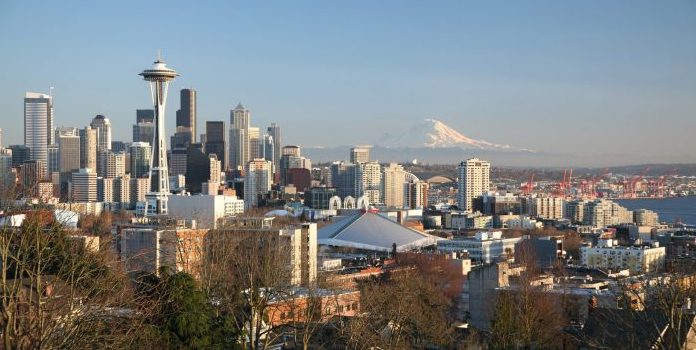(FEE) Matthew Humphrey recently lost $4,000 worth of goods in a theft of his Seattle barbershop.
Under a new proposal the Seattle City Council is considering this month, what happened to him wouldn’t even be a crime—if the thieves claimed they were driven by poverty, that is.
“I think it’s insane,” the victimized barber told a local news outlet. “It’s one of these well-intended concepts (of) we want to take care of people that can’t take care of themselves. But what you are really doing is hurting other people.”
Up for debate is a reform proposed by Seattle City Council member Lisa Herbold. For up to 100 different misdemeanor crimes, including theft, harassment, shoplifting, trespassing, and more, an individual could be excused if he or she claims poverty was their motive.
“In a situation where you took that sandwich because you were hungry and you were trying to meet your basic need of satisfying your hunger; we as the community will know that we should not punish that,” King County Director of Public Defense Anita Khandelwal said of the proposal, which she helped craft. “That conduct is excused.”
The intent of the proposal is to avoid punishing desperate people just trying to survive. But the provision exempts not only stealing food or similar necessities, but stealing anything—if you claim the money gained from its sale would be used for essentials.
First and foremost, this policy would obviously incentivize more crime and more theft.
It would basically give anyone with a good sob story a green light to violate property rights at will. In doing so, it would condemn Seattle to economic decline.This policy would basically give anyone with a good sob story a green light to violate property rights at will.
In a free market with secure property rights, people can engage in mutually-beneficial commerce. In working to earn a profit, they will create employment opportunities and provide others with the goods and services they need. Businesses can invest and communities can grow.
Without secure property rights, none of this is possible.
Think about it using Humphrey, the aforementioned barber, as an example. As a small business owner, he employs people in his Seattle neighborhood. They go out and spend their money elsewhere around town. Meanwhile, locals can get haircuts they want at a price that’s worth it to them (otherwise, he’d be out of business with no one willing to pay).
Yet if the Seattle proposal became law, Humphrey and thousands of other small business owners would likely have to shut down.
“It’s a little upside-down world,” he said. “The end result is small companies like mine have to close their doors because they can’t afford to be broken in [to] all the time.”
You certainly can’t blame him. There’s no way any small business owner could possibly operate when anyone who is poor or homeless—or claims to be—is able to rob their store and get away with it. Survival, let alone profitability, is impossible amid such unpredictability and lawlessness.
And so, while perhaps some homeless or poor people might benefit from lawless looting in the very short-term, this reform would almost certainly destabilize and erode the city’s economy and incentivize crime.
If businesses cannot operate, jobs will not exist, wages will not be offered, taxes will not be paid, and, in short order, crime and poverty will only increase.If businesses cannot operate, jobs will not exist, wages will not be offered, taxes will not be paid, and, in short order, crime and poverty will only increase.
This is why free-market economist Thomas Sowell once said that property rights “belong legally to individuals, but their real function is social, to benefit vast numbers of people who do not themselves exercise these rights.”
None of this is conjecture. The strength of property rights in a nation (and it’s certainly true for a city as well) closely correlates with its average per-person income.
So, the takeaway here is clear.
Progressive Seattle officials might have the best of intentions behind their proposal to create a hardship exemption to property crimes. But, if successful, their naïve efforts would undermine the rule of law and property rights necessary for Seattle’s economy to survive…Original Article.

